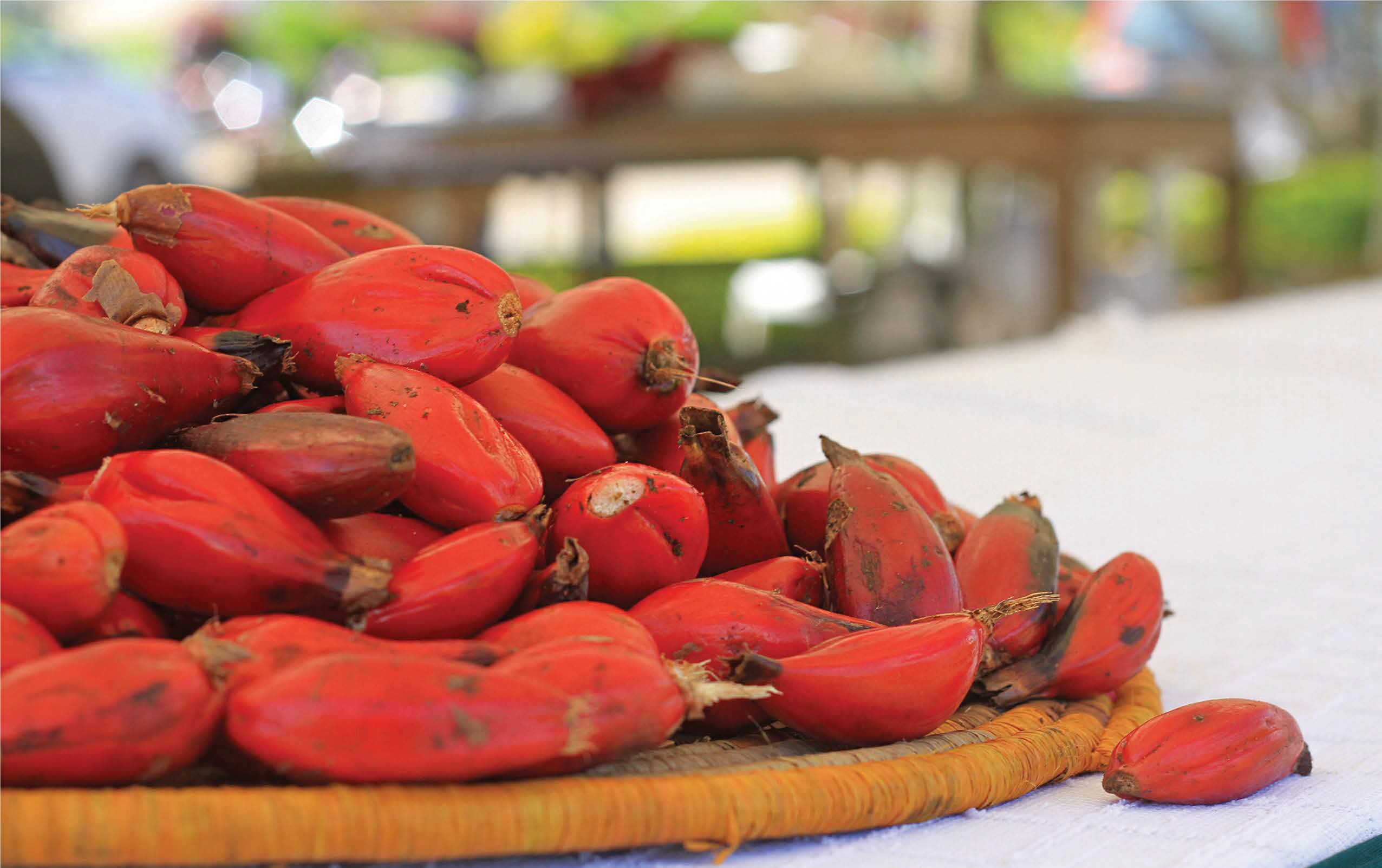On this year’s International Day for Biological Diversity, Natalie Lartey and Immaculate Yossa Daisy discuss how advocacy to protect Uganda’s indigenous food is simultaneously preserving the nation’s biodiversity.
Biodiversity underpins the earth’s life support system. It balances a finely-tuned ecosystem that helps deliver basic human needs, including food. Biodiversity keeps water fresh and air clean; it increases soil fertility and promotes pest control and pollination.
Uganda is in the world’s top ten most biodiverse countries. Supporting this ranking is a rich variety of indigenous crops such as millet and sorghum, and indigenous wild fruits, vegetables and medicinal plants. These crops can more easily withstand climate shocks such as drought, and are more nutritious than their modern equivalents.
But, increasingly, indigenous foods have been replaced by monocropping of non-indigenous, high-yielding staples such as rice and maize – a trend driven by policies and subsidies promoting agricultural modernization and commercialization. Consumption of indigenous fruits and vegetables is low, and knowledge of how to prepare indigenous plants is not widespread.
Other factors including a decline in land dedicated to indigenous agriculture threaten the survival of Uganda’s indigenous food systems.
How do indigenous foods support biodiversity?
Farming of indigenous food crops is more environmentally friendly than methods used in commercial agriculture. Indigenous farming systems require less water and fewer chemical fertilisers and pesticides. These traditional farming methods help keep soil rich with biodiversity while nourishing the food that grows.
Although most indigenous foods are grown in rural areas or found in the wild, some farmers are now cultivating indigenous crops in both rural and urban areas of Uganda, and selling them to a small but growing number of people, conscious of the nutritional and environmental benefits.
This emerging market has the potential to create short, local food chains that leave the food system less dependent on global food imports. This can help avert food shortages caused by major global disruptions such as COVID-19, and the impacts of climate change.
Evidence provides answers
An IIED-Hivos study carried out under the Sustainable Diets for All (SD4All) program calls on local and national decision makers to promote and conserve indigenous food systems, and the biodiversity they protect.
The study documents the status and importance of indigenous food systems in Uganda, and confirms that a loss of indigenous fruits, vegetables, legumes and grains due to an increase in monocultures, has heightened crop vulnerabilities to pests and diseases. A recent example from Uganda and across the horn of Africa is the devastating increase of locust and fall army worm invasions on maize and other staple crops.
According to the study, some national policies do recognize the need to conserve, produce and consume indigenous foods – but much more is needed to implement these policies at local and national levels.
Civil society push for policy implementation
SD4All partner, the Food Rights Alliance (FRA) is at the forefront of efforts to ensure uptake at national level of existing policy to improve access to indigenous foods. FRA are working with government as Uganda draws up a new national development and investment framework for the next five years.
Regina Kabasomi Kayoyo, Advocacy Officer for FRA explained how indigenous foods and biodiversity go hand in hand: “Policies that promote indigenous foods must be integrated into national development and investment frameworks – for example strengthening informal indigenous seed systems is crucial, it’s a topic we hope to see in the governments new plans.”
According to Regina, the debate around protecting biodiversity through the promotion of indigenous food systems has never gained traction because policy actors struggle to connect the two. However, a more joined-up approach from government ministries could help turn things around.
Youth championing biodiversity
FRA also supports young people to bring their personal experience of the benefits of indigenous foods to policy makers. This includes working with the Ugandan Youth Biodiversity Network whose advocacy efforts seek to protect indigenous and traditional foods though a biodiversity awareness campaign. Country team leader, Derrick Mugisha explained, “This project has shown me and my team that policy spaces aren’t exclusive and we as youth have something to offer national government processes.”
Uganda are getting the attention of policy makers, encouraging them to examine the country’s relationship with the natural world, and make policy choices that conserve and protect indigenous food systems and local biodiversity.
The theme for this year’s international biodiversity day should be a rallying cry that guides the changes to come – our solutions are in nature.
Natalie Lartey (natalie.lartey@iied.org) is an advocate at IIED working on the sustainable diets for all programme.
Immaculate Yossa Daisy (iyossa@hivos.org) is a regional advocacy manager working on the sustainable diets for all programme.




